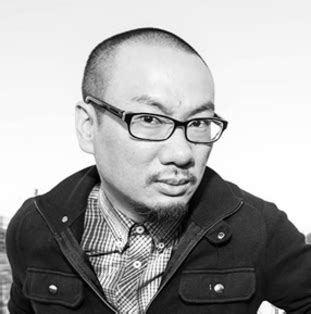A Quote by John Ashbery
Poetry comes to me out of thin air or out of my unconscious mind. It's sort of the way dreams come to us and the way that we get knowledge from them, through television, old movies, which I watch a lot of. Lines of dialogue suddenly seem to be part of a poem.
Related Quotes
Watching old movies is like spending an evening with those people next door. They bore us, and we wouldn't go out of our way to see them; we drop in on them because they're so close. If it took some effort to see old movies, we might try to find out which were the good ones, and if people saw only the good ones maybe they would still respect old movies. As it is, people sit and watch movies that audiences walked out on thirty years ago. Like Lot's wife, we are tempted to take another look, attracted not by evil but by something that seems much more shameful -- our own innocence.
Introduction To Poetry I ask them to take a poem and hold it up to the light like a color slide or press an ear against its hive. I say drop a mouse into a poem and watch him probe his way out, or walk inside the poem's room and feel the walls for a light switch. I want them to waterski across the surface of a poem waving at the author's name on the shore. But all they want to do is tie the poem to a chair with rope and torture a confession out of it. They begin beating it with a hose to find out what it really means.
A trouble with poetry is the presence of presumptuousness in poetry, the sense you get in a poem that the poet takes for granted an interest on the reader's part in the poet's autobiographical life, in the poet's memories, problems, difficulties and even minor perceptions. I try to presume that no one is interested in me. And I think experience bears that out. No one's interested in the experiences of a stranger - let's put it that way. And then you have difficulty combined with presumptuousness, which is the most dire trouble with poetry.
In a world where there are no longer books we have almost all of us read, the movies we have almost all of us seen are perhaps the richest cultural bond we have. They go on haunting us for years the way our dreams go on haunting us. In a way they are our dreams. The best of them remind us of human truths that would not seem as true without them. They help to remind us that we are all of us humans together.
I write poetry to figure things out. It's what I use as a navigating tool in my life, so when there's something that I just can't understand, I have to "poem" my way through it. For that reason I write a lot about family, because my family confuses me and I'm always trying to figure them out. I write a lot about love, because love is continually confusing in all of its many glorious aspects.
A lot of great thinkers- like Einstein and Newton- come up with their best ideas when they're young because they don't yet think in the way that the establishment teaches them. Sometimes your lack of knowledge frees your mind to be creative and think in a different way. But you still have to be logical and figure out a practical way to get things done, even though you're looking at things differently.
That perhaps is your task--to find the relation between things that seem incompatible yet have a mysterious affinity, to absorb every experience that comes your way fearlessly and saturate it completely so that your poem is a whole, not a fragment; to re-think human life into poetry and so give us tragedy again and comedy by means of characters not spun out at length in the novelist's way, but condensed and synthesized in the poet's way--that is what we look to you to do now.
People I know who succeed don't mind working. Those who are competent seem to like doing things well -- not stopping because they haven't accomplished what they wanted to on the first go-round. They're willing to do it twenty times, if necessary. There's an illusion that the good people can easily do something, and it's not necessarily true. They're just determined to do it right. I was impressed by hearing one of the women at Radcliffe talk about writing a poem, how many revisions a single poem sometimes has to go through -- fifty or sixty revisions to come out with a poem sixteen lines long.
A lot of mantras that I use in my daily life to get through - to move through the world in peace and harmony with myself - find their way into the music that I make. Many of the lines that people seem to be drawn to in my music really come from these mantras that I repeat to myself to try and move through the world in more thoughtful, comfortable way.
I think you get the most honest performances when an actor shows up to set with their lines memorized. That's a very important thing that a lot of people seem to forget. You have a pre-conceived notion of what you want the scene to be, but once you get there, that goes out the window and it turns out to be a way that you never imagined.
To conjure a particular knowledge you visualize an architectural structure and then you walk around and see the details that then bring back the words or the poetry or the lines of thought. Memory's going extinct because we rely on machines and copies and so on. The idea of working with structures that conjure dreams, personages, history, time, that can be contained in this way as you walk through your mind, is a challenge.
I want to get out of the way of the actors. I want to get out of their eye lines. I want to them to stop thinking they're making a movie. I want them to just go and live. It's like you take these great actors and put them in an aquarium of life, and just watch them swim. That's what makes editing tough because you get all these beautiful, unplanned moments.





































